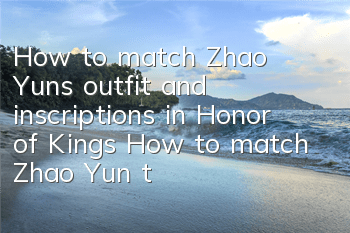[Poems on the first day of the first lunar month] Wang Anshi's "Year Day": One Yuan resumes, everything is renewed
Year Day
(Wang Anshi, Song Dynasty)
The year is over with the sound of firecrackers, and the spring breeze brings warmth to the summer.
Thousands of doors and thousands of households are bright and bright, and they always replace the old charms with new peaches.
【Annotation】
The upper Ping Yu rhyme is, and the rhyme is Su and Fu; the seven-character quatrain starts. The subject is a verse poem, which describes the lively and cheerful scenes of the festival. The sunrise is bright and warm. Tao: that is, Tao Talisman.
The author Wang Anshi (1021-1086), whose courtesy name is Jiefu and his pseudonym Banshan, is now a native of Fuzhou City, Jiangxi Province. He is a politician, writer, thinker and reformer in the Northern Song Dynasty.
【Reading poems and making fun of it】
The first day of the first lunar month is called "Spring Festival" for only more than a hundred years. In the past thousands of years, its well-known names were "New Year's Day", "New Year's Day", etc. The Spring Festival (Year Day) of the Song Dynasty was still very lively. People set off firecrackers, pasted Spring Festival couplets (peach talismans), and of course, Tu Su to cheer up. Tu Su is also called Suijiu. It is said that Hua Tuo invented it, and many poets like this.
【Inside and Outside Poetry】
You are lucky on the New Year (Happy New Year). Focusing on today's poems, we will mainly share the following three topics with you.
First, New Year's Day.
The so-called Yuan means the beginning, and the beginning of any number is called "Yuan". The name of this festival can be traced back to the "Shangshu Shun Dian": "The moon is on the first day, and Shun is on the ancestor of Wen Xiang." Kong Chuan's note said: "The moon is on the first month; the day of the first day is on the previous day."
Although people are not as good as the "Spring Festival", the names of the "Yuan" generation such as "Yuan Day" are the correct names that have been used for thousands of years on the first day of the Lunar New Year.
The Lunar New Year is called "Spring Festival" for only more than a hundred years, which began at the beginning of the establishment of the Republic of China. The "New Year's Day" in the "Yuan" generation is used to call the first day of the Gregorian New Year - this should be familiar with everyone and will not explain it much.
Interestingly, during the "Spring Festival", "Summer Festival", "Autumn Festival" and "Winter Festival" were also set up to reduce people's attention to traditional lunar festivals and enhance the importance of the Gregorian New Year's Day in people's lives, but it seems that it is not successful. People still deeply like to celebrate the farming (old) years. Mr. Lu Xun has feelings about this in his novel:
After all, the end of the year in the old calendar is the most similar to the end of the year. Needless to say, the villages and towns also show the weather that the New Year is coming in the sky. (Lu Xun's "Blessings")
After all, the "New Year's Day" of the Lunar New Year has too many Chinese nationsthing.
Second, New Year's Day customs.
The Chinese nation has a spirit of upholding integrity and innovation, that is, the core of good things will be passed down, and at the same time, it will change and innovate some content or forms according to the needs of the times - this is reflected in all areas of our production and life, and the same is true in holiday customs.
The New Year's Day (New Year's Picture) Collection of the Capital Museum
For example, the customs of the New Year, the custom of setting off firecrackers and pasting Spring Festival couplets continue, but how to put firecrackers and where to put them, the content and pasting methods of Spring Festival couplets are different in each era.
For example, drinking Tusu wine. Many people in the Tang and Song dynasties enjoyed this sip, such as "Su Liquor for Su" (Zhang Yuangan), "Su Liquor after drinking" (Lu You), etc. Those who are interested in drinking can go and study it in depth. But now, it may be rare for people who like to drink two drinks. ——This is change.
In fact, no matter how the specific form and content of customs change, the core role of the festival remains unchanged: to cheer people up for the gatherings, to avoid misfortunes for the arrival of the New Year, to have the characteristics of people's favorites, to highlight people's beautiful lives and good wishes, etc. With these meanings, customs are inherited and respected, and festivals are loved by people, thus becoming more vital.
Third, why choose this poem by Wang Anshi.
There are many poems written on the New Year. After searching, thousands of poems will be presented to you. In these New Year’s Day poems, we read that Emperor Taizong of Tang was thinking about the strategy of governing the country, Du Fu was teaching his children, Han Yu was still working overtime, Liu Yuxi and Bai Juyi drank and sang together... Some people had a peaceful and joyful New Year’s Day, while others had a bleak New Year’s Day and were in a difficult life.
The reason I chose this poem by Wang Anshi is because in addition to feeling the lively and pleasant atmosphere of the first day of the New Year, we also feel that there is an upward power and emotion that is full of inspiring people to move forward, allowing us to see that the beautiful year seems to be waving to us.
"Wang Anshi's Reform" Oil Paintings Collection of the National Museum
This poem "Year Day" was written when Wang Anshi began his reform as a minister, so some commentators believe that this poem "is both writing about the New Year and the New Year's Day, and writing about the new law in full swing, praising and affirming the victory and bright future of implementing the new law" (Xiong Baiqi's "Selected Quatrains of the Eight Great Masters of the Song Dynasty").
"Always replace the old charms with new peaches", the two words "total" and "change" are used particularly well. In the New Year customs in many places, there is a saying that "what did you do today, it will be like this for a year." In the new year, we who are looking forward to progress always set goals, or make wishes for ourselves, and start to do it.
One year begins and everything is renewed!
This Spring Festival couplet should not only be attached to the door, but also to the heart to encourage struggleI am showing great success in the New Year!
Author Gao Li: Master of Classical Literature, Zhejiang University, Vice President of Hangzhou High School
Twenty years ago, when my vision of reading ancient poems gradually expanded from various anthology such as "Three Hundred Tang Poems" to collections of poems such as "Complete Tang Poems" and "Complete Song Poems" and complete collections of poems by famous artists, I found that we Chinese have too much "concept of time", and many poems have clear writing dates, such as:
"Application to Judge Zhou on March 28th", "After dreaming on August 30th, the second year of Baoli", "My 14th Correspondents of Meng Shi Er Cang Cao on September 1st"...
At that time, I thought, it would be fun to collect all the poems of 360 days a year (lunar calendar)!
Baidu and Google make it easy to find and collect poetry - I clearly remember that when I realized this, it took me less than two weeks to collect all the poetry and store it in a folder called "One Poem a Day" in a corner of my computer.
An ancient poem every day, with the date and the date of the work being written exactly;
A ancient poem every day, including classics, and non-famous but equally vivid and interesting poems that you may not read in your life.
On the Spring Festival of the Year of the Rabbit, I am very happy to share with you the ancient poems from the seven days from New Year's Eve to the sixth day of the first lunar month through Qianjiang Evening News hourly news, and have a poetic Spring Festival with students who love traditional culture.
I have collected and published a book "Interactive Poetry·Lunar Calendar" for the whole year. Students who are interested can find it to read it.









